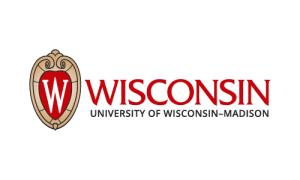UNIVERSITY of WISCONSIN-MADISON: MATCH DAY 2021 BRINGS NEWS OF NEXT CHAPTER FOR UW MEDICAL STUDENTS
In a day filled with excitement for the future, UW School of Medicine and Public Health medical students in the class of 2021 were matched into their clinical residency training programs on Friday, March 19.
This marks the second Match Day of the COVID-19 pandemic. A year ago, medical students throughout the nation navigated abrupt changes in their education during the final weeks before graduation. But, while the class of 2020 was the first to shift from medical school to residency training during the pandemic, their medical school experience was much closer to its end when the pandemic hit.
For the class of 2021, the final year of medical school has been thoroughly shaped by the impact of COVID-19 on medical education — sparking instructional innovations and casting clinical learning experiences in context of the pandemic. These soon-to-be graduates will now conduct the next phase of their career in a world where medical professionals are in the spotlight like never before in modern history.
Sarah Styer celebrating a residency match
With her family during the remote celebration, medical student Sarah Styer revealed she will complete residency training in emergency medicine at the University of Cincinnati Medical Center in Ohio.
The school’s 2021 Match Day celebration was held virtually. The class selected a “Match Day Live” theme, a play on “Saturday Night Live.” Students, faculty, and school leaders recorded comedy sketches to play during the event, with titles such as “Matchelorette” and “Match Day Update.”
This year, 163 students matched into residency programs in 29 different states plus the District of Columbia. Forty percent of the students matched into primary care disciplines (family medicine, internal medicine, and/or pediatrics). The UW School of Medicine and Public Health gives students a strong foundation in these areas and is currently ranked 18th among U.S. medical schools for primary care by U.S. News & World Report.
Students enter residency forged by life experiences — including not only joys, but challenges and losses. For example, during his four years in medical school, Ross Gilbert lost his father and became one himself.
Ross Gilbert and family
Ross Gilbert and his family at his White Coat ceremony in August 2016, as he was beginning his medical education.
His daughter Celine was born during the pandemic. Match Day brought the news of where Celine will spend the first years of her life: in Baltimore, Maryland, while her father trains in combined internal medicine and pediatrics at Johns Hopkins Hospital.
“Medical school and the life events that happened are really a lesson in adapting and staying focused, but also in taking care of yourself,” he said. “And also finding out what your priorities are and how to shift those priorities as you go. I think that all is going to serve me really well as a resident.”
Ross Gilbert
Medical student Ross Gilbert sat with his wife and baby daughter to announce his Match. He will train in combined internal medicine and pediatrics at Johns Hopkins Hospital.
While Match Day celebrations usually take a light-hearted theme, the use of comedy this year provided levity to a period of heightened complexity due to the pandemic.
Sam Lubner, MD, associate professor of medicine, and Alexis Eastman, MD, assistant professor of medicine, are both heavily involved in medical student education and served as co-hosts for the event. The two say that the experience of helping plan and write sketches and jokes as hosts was a welcome creative outlet.
“Sam and I are both deeply passionate about medical student education and are involved in many stages of their training,” Eastman said. “Every year, Match Day is both a time of great stress and celebration, and a little humor goes a long way towards breaking any tension and reinforcing the bonds the students have forged in their time training together. This year, those bonds have been even more important.”
The Match process is complex, filled with excitement, anticipation, and even mystique. Students contemplate throughout medical school which area of medicine they would like to specialize in. In a series of interviews — all virtual this year due to the pandemic — students meet with schools and hospitals around the country to see where they would like to do their residency.
The students and schools both rank each other, and an algorithm managed by the National Resident Match Program takes it from there. At 11 a.m. Central Time on Match Day, all match results are released simultaneously.
Dean Robert N. Golden, MD, congratulated the students in the ceremony just before matches hit inboxes, wishing them well on the next chapter of their medical education.
“Your diversity, idealism, and energy have made us a better place,” he told the students. “I deeply respect the ways you have supported each other and your resilience in navigating the exceptionally turbulent seas of the COVID-19 pandemic. These traits will be incredibly important as you navigate the next phase in your professional development.”
A student practicing CPR
Medical student Sarah Styer is part of the Wisconsin Academy for Rural Medicine, which holds rural disaster drills for students to get experience in emergency situations. This one of a mock drowning accident took place on a family farm in La Crosse County, Wisconsin in 2019.
Jason Ray Photography
Student Sarah Styer, from rural Menomonie, Wisconsin, is part of the school’s Wisconsin Academy for Rural Medicine (WARM). She hopes to practice rural medicine in Wisconsin or Minnesota and will pursue residency training in emergency medicine at the University of Cincinnati Medical Center in Ohio.
“I’m going to be sad to leave medical school, even though I’m excited for residency. But it’s sad to leave the teachers that we’ve had, because everyone’s just been so great,” she says. “I’m hoping that as a resident I can pay it forward to future medical students down the road and be involved in their education as well.”

